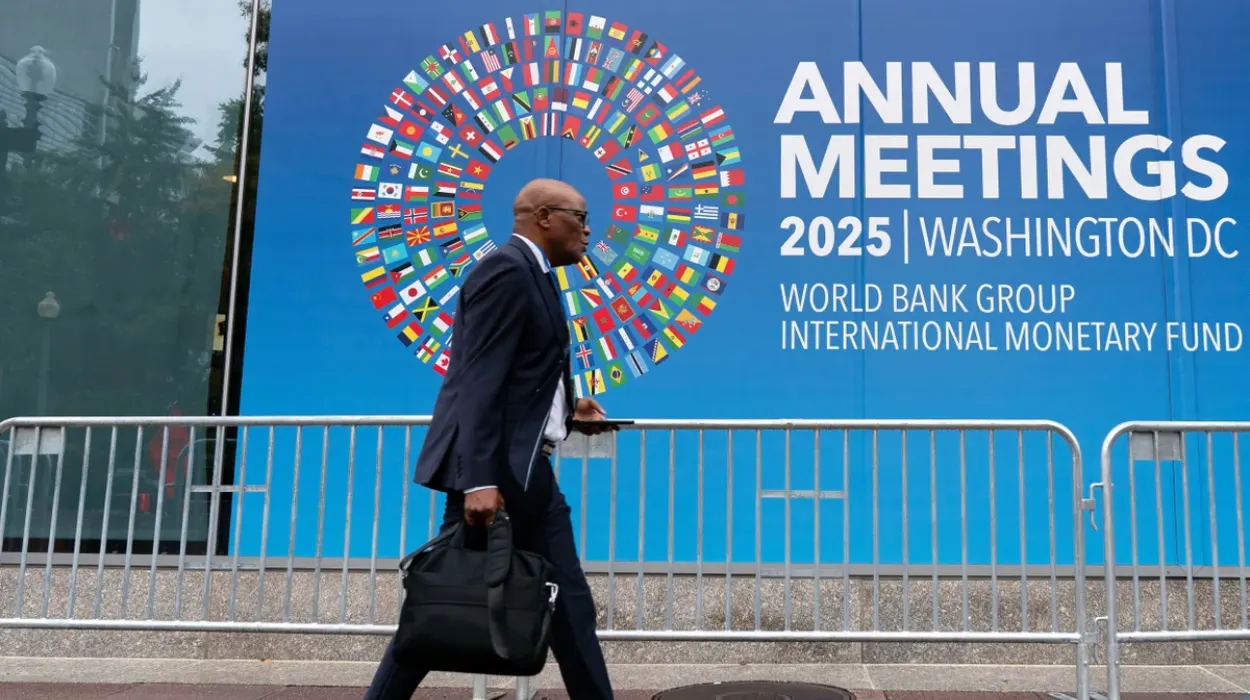Washington (Parliament Politics Magazine) – The IMF reports that global government debt may reach 100% of GDP by 2029, with the UK, US, China, Japan, and France at risk.
As reported by The Guardian, the IMF warned that by 2029, global debt could rise to 100% of GDP, the highest since World War II.
IMF’s report on the global debt
The IMF reported that global government debt grew faster than expected before the pandemic, as governments helped people and businesses. It urged governments to invest in schools and transport to grow the economy and manage debts.
A global debt-to-GDP ratio of 100% would hit its highest since 1948, after six years of war and reconstruction costs.
The report highlighted that the UK’s debt will top 100% of GDP, joining France, Japan, Canada, China, and the US among G20 nations.
The IMF said nations still face rising spending pressures, but the reluctance to raise taxes remains high.
The report stated,
“Looming expenditures on defence, natural disasters, disruptive technologies, demographics, and development add to public spending demands. All these pressures and demands come together with sharp political red lines against tax increases and diminished public awareness of fiscal limits.”
The monetary organization said emerging economies may struggle with debt management even with relatively low debt-to-GDP levels.
It said,
“Many emerging markets and low-income countries face tougher fiscal challenges, despite their relatively low debt.”
The IMF says 55 countries face debt problems or are at risk, even with debt under 60% of GDP.
Activists urged the IMF to do more on unsustainable debt, calling the Common Framework slow and hard to use.
IMF’s stance on rising UK debt
The IMF forecast UK public debt to reach 105% of GDP in 2024, before easing slightly to 105.4% in 2030. Chancellor Rachel Reeves changed fiscal rules last year and now tracks debt differently.
Speaking at the IMF’s annual meetings in Washington on Tuesday, deputy director Athanasios Vamvakidis warned that bond investors are focused on the UK.
He added,
“Clearly markets are concerned about the UK economy, and we have seen more volatility in the UK compared to other advanced economies.”
Vitor Gaspar’s stance on rising global debt
Vitor Gaspar, director of the Fiscal Affairs Department at the IMF, says government debt is rising to levels not seen since 1948.
He added,
“The years between the global financial crisis and the pandemic were marked by unusually easy conditions for sustaining debt. Rising debt was accompanied by falling interest rates, leading to an overall stable interest bill on budget. But the situation is now starkly different. Interest rates have increased considerably in global markets, and their path forward is highly uncertain.”
Rachel Reeves’ views on tackling the UK’s budget deficit
Rachel Reeves has confirmed that the budget could include both tax increases and spending cuts.
When asked about tackling the UK’s economic issues, the chancellor said, “We are looking at tax and spending as well.”
She stated,
“I was really clear during the general election campaign – and we discussed this many times – that I would always make sure the numbers add up.”
The chancellor said,
“Challenges are being thrown our way – whether that is the geopolitical uncertainties, the conflicts around the world, the increased tariffs and barriers to trade. And now this (OBR) review is looking at how productive our economy has been in the past and then projecting that forward.”
She said,
“Of course, we’re looking at tax and spending as well, but the numbers will always add up with me as chancellor because we saw just three years ago what happens when a government, where the Conservatives, lost control of the public finances: inflation and interest rates went through the roof.”
Ms Reeves stated,
“Austerity, Brexit, and the ongoing impact of Liz Truss’s mini-budget, all of those things have weighed heavily on the UK economy. Already, people thought that the UK economy would be 4% smaller because of Brexit.”
She added,
“Now, of course, we are undoing some of that damage by the deal that we did with the EU earlier this year on food and farming, goods moving between us and the continent, on energy and electricity trading, on an ambitious youth mobility scheme, but there is no doubting that the impact of Brexit is severe and long-lasting.”
Key speakers at the 2025 IMF Annual Meetings
The IMF and World Bank meetings in Washington focus on the global economy, finance, and development, with leaders attending.
The key speakers at the 2025 IMF Annual Meetings include:
- Kristalina Georgieva – Managing Director, IMF
- Pierre-Olivier Gourinchas – Economic Counsellor & Director, Research Department, IMF
- Petya Koeva Brooks – Deputy Director, Research Department, IMF
- Deniz Igan – Division Chief, Research Department, IMF
- Ajay Banga – President, World Bank Group
- Olavo Avelino Garcia Correia – Vice Prime Minister & Minister of Finance, Cabo Verde

